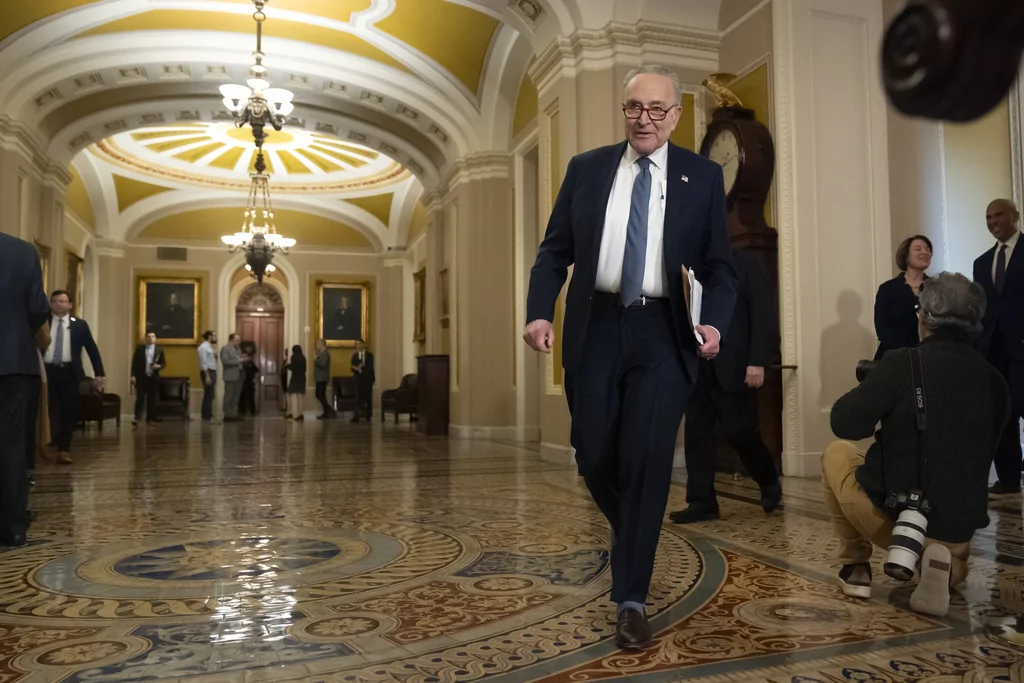
The bipartisan legislation, which cleared the Republican House 327-75 last month, would boost the benefits of Americans by eliminating reductions for those with public pensions, such as teachers and first responders.
Senate Majority Leader Chuck Schumer (D-NY) argued the bill “would ensure Americans are not erroneously denied their well-earned Social Security benefits, simply because they chose at some point to work in their careers in public service.”
“This is a chance for senators to do the right thing for our teachers and nurses and postal workers and law enforcement officers and firefighters,” Schumer said. “And they will certainly be watching what we do with their retirement benefits.”
Currently, two tax rules known as the Windfall Elimination Provision and the Government Pension Offset reduce the Social Security benefits of around 2.8 million people, or roughly 4% of all beneficiaries. The WEP decreases the benefits of those who also have a pension from jobs not subject to Social Security payroll tax, while the GPO reduces benefits of spouses and widows or widowers with a government-based pension from jobs also not covered by Social Security.
The Social Security Fairness Act would increase payments by eliminating both rules that advocates say unfairly punish those who work in public service.
This is the Senate’s last week of the session. If the legislation fails to pass and get sent to President Joe Biden’s desk, Congress will have to start over next year and work to pass the legislation again under a new House, Senate, and White House. Advocates say that would likely mean defeat, given new legislative priorities and administration.

The measure is led by retiring Reps. Garrett Graves (R-LA) and Abigail Spanberger (D-VA) in the House and Sens. Sherrod Brown (D-OH) and Susan Collins (R-ME) in the Senate. Brown lost reelection last month, making Collins the only returning lawmaker next year of the proposal’s main authors. It’s expected to clear with bipartisan support in the Senate, where there are 62 co-sponsors.
Opponents, particularly spending hawks, have several objections to the proposal. They include no pay-for measure to fund the increased Social Security payouts that would more quickly deplete a vital system already headed for insolvency. There are also concerns that eliminating the tax rules may allow certain people to ultimately receive more benefits than those who contributed more throughout their careers with jobs subject to Social Security taxes.
Without any changes, the nonpartisan Congressional Budget Office estimates the Social Security trust fund will run out of money in fiscal 2033. Enacting the Social Security Fairness Act would move up that timeline by “roughly half a year earlier than it would be under current law,” the CBO recently told Sen. Chuck Grassley (R-IA) after inquiring about its financial implications.
The CBO previously projected that eliminating the deduction rules would cost $183 billion over a decade.
MEET THE NEW CONGRESS: THE HOUSE AND SENATE FRESHMEN ELECTED TO SERVE NEXT YEAR
The Committee for a Responsible Federal Budget, a nonprofit think tank, urged Congress to focus on fixing Social Security’s long-term solvency problems instead.
“It is truly astonishing that at a time when we are just nine years away from the trust fund for the nation’s largest program being completely exhausted, lawmakers are about to consider speeding that up by six months,” said CRFB President Maya MacGuineas. “And add on top of that another $200 billion in new borrowing as a result. We are racing to our own fiscal demise.”







